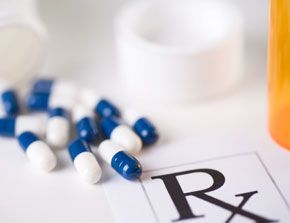Americans Skipping Prescription Meds To Save Money

American adults younger than 65 are twice as likely to skip prescription medication to save money, with the uninsured and poor most likely to forgo medicine, a new study shows.
The Centers for Disease Control and Prevention, CDC, released a study Tuesday indicating that more Americans cannot afford to pay for all of their prescribed medications, even as they spent $45 billion out-of-pocket for pharmaceuticals in 2011.
"If you're not insured or you face high co-payments, you're going to stretch your prescriptions," said Steve Morgan, an associate professor at the University of British Columbia's School of Population and Public Health in Vancouver. "Even among insured populations, there is this invincibility mindset among the very young. Older people are more likely to adhere to chronic therapies over a longer period of time than younger."
In fact, 13 percent of those younger than 65 skipped prescription medications to save money, compared to 6 percent of elderly Americans. The same percentage of younger Americans, and 2 percent of elderly, said they tried alternative therapies to avoid the higher cost of prescription drugs. In the doctor's office, one-fifth of Americans have asked for cheaper treatments with 6 percent of adults younger than 65 and 2 percent of the elderly.
As Americans pump billions into the country's most profitable industry, non-adherence to prescription regimens ends up costing the system even more. The New England Healthcare Institute, according to USA Today, said such non-adherence costs a collective $290 billion per year. And a study last year from the University of Maryland found that Medicare patients with chronic obstructive pulmonary disease, COPD, who skipped their medications experienced an attendant rise in hospitalization rates, costing the Medicare system an average of $3,764 more than others.
With data from the 2011 National Health Interview Survey, researchers said poorer Americans and others without health insurance experienced worse health outcomes with increased emergency room use and hospitalizations, in addition to more heart-related incidents. Those among the more than 45 million Americans lacking health insurance were most likely to skip prescription medications, compared to those with Medicaid and private insurance. Among the younger uninsured, 23 percent reported skipping medications, compared to 13.6 percent on Medicaid and 8.7 percent with private insurance.
With Medicare and Medicaid as a baseline, elderly Americans without private insurance — or partial private insurance to cover "gaps" between government-paid care and out-of-pocket expenses — reported the lowest rates of non-adherence to the prescription pad. Among those with Medicare alone, 7.6 percent skipped medications compared to 7.1 percent with Medicare and Medicaid and 4.5 percent for those with private insurance.
Researchers at the Kaiser Family Foundation say Americans would spend 6.6 percent more per year on prescription drugs from 2015 to 2021. The CDC says 47.9 percent of Americans used a prescription drug at least once during the past month.



























